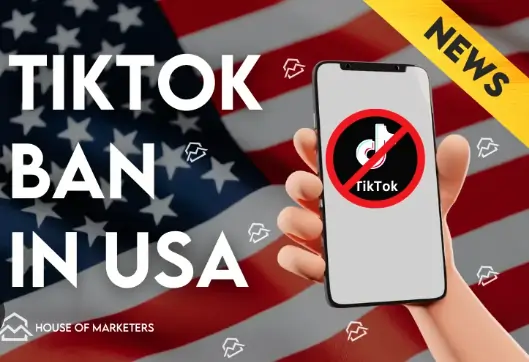
Table of Contents
The future of TikTok in the United States now rests with the Supreme Court, and the outlook for the app seems increasingly grim.
On Friday, the Court heard arguments regarding a law that could effectively ban TikTok unless its Chinese parent company, ByteDance, divests ownership. Signed into law by President Joe Biden in April, the legislation gives TikTok a stark choice: sell off its U.S. operations or face a nationwide ban.
The hearing didn’t bode well for TikTok, with several justices appearing inclined to uphold the law. They questioned the app’s legal team about its claim that the ban infringes on First Amendment rights, casting doubt on the strength of their arguments.
The practical implications of such a ban remain uncertain, as the U.S. has never blocked a major social media platform before. Questions linger about how enforcement would work and what it means for the millions of Americans who use TikTok monthly.
What Happens If TikTok Is Banned?
Shutdown Scenarios
TikTok’s attorney, Noel Francisco, expressed uncertainty about the mechanics of a ban, stating, “On January 19, as I understand it, we shut down.” The law would prohibit service providers from supporting the app, effectively halting its operations.
TikTok has also warned the Supreme Court that if the law is enforced, it will affect over 170 million monthly U.S. users starting January 19, 2025. However, the app won’t vanish overnight for those who already have it installed.
Removal from App Stores
If the ban takes effect, the U.S. government is expected to compel Apple and Google to remove TikTok from their app stores. While current users could continue using the app, they wouldn’t be able to download updates, leaving it vulnerable to bugs and security threats over time. Eva Galperin, cybersecurity director at the Electronic Frontier Foundation, cautioned that such vulnerabilities could expose users to hacking risks.
Although it could take weeks or months for these issues to significantly impact user experience, the government might also direct internet service providers (ISPs) to block TikTok’s web access—a more complex enforcement method given the number of ISPs involved.
Can Users Circumvent a Ban?
Despite the potential ban, users may find workarounds through tools like virtual private networks (VPNs), which can mask a user’s location and make it appear they are accessing the internet from another country. Cybersecurity expert Galperin noted that countries like Turkey have long blocked social media platforms, but citizens commonly bypass restrictions using VPNs.
Could a Sale Save TikTok?
Even if the ban goes into effect, ByteDance retains the option to sell TikTok’s U.S. operations to a non-Chinese owner, potentially restoring access for American users. Interest in such a deal remains high, with billionaire Frank McCourt and investor Kevin O’Leary recently submitting a formal bid.
The U.S. Solicitor General, Elizabeth Prelogar, suggested that the law might be the necessary push for ByteDance to reconsider divestiture.

The Role of the Incoming Administration
Adding to the uncertainty, President-elect Donald Trump has signaled a willingness to negotiate a deal to save TikTok. Trump’s legal team has urged the Court to delay the ban’s implementation, currently set to take effect just one day before his inauguration, to allow time for such negotiations.
While some speculate that a new administration could decline to enforce the ban, Justice Sonia Sotomayor warned companies against assuming such assurances would hold, emphasizing that the law would remain in effect unless changed.
As the clock ticks toward January 19, TikTok’s future hangs in the balance, with millions of American users awaiting clarity on whether they will lose access to the platform.







